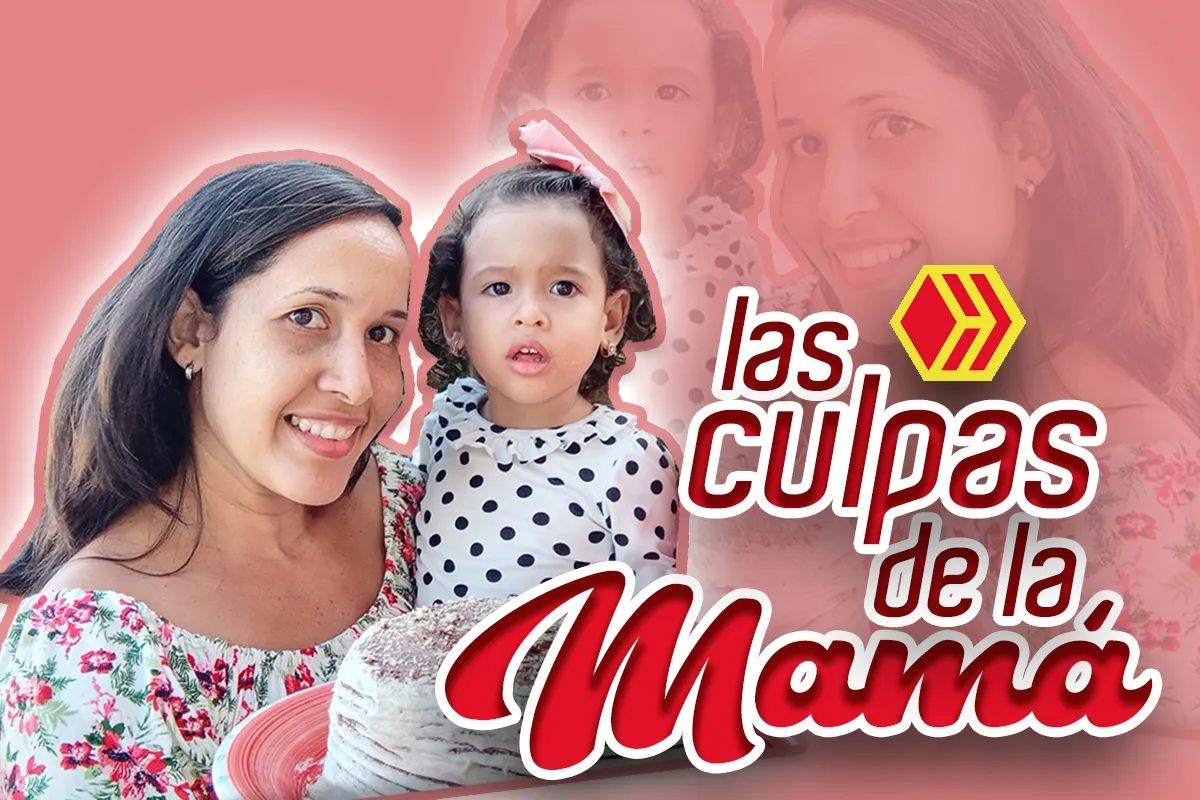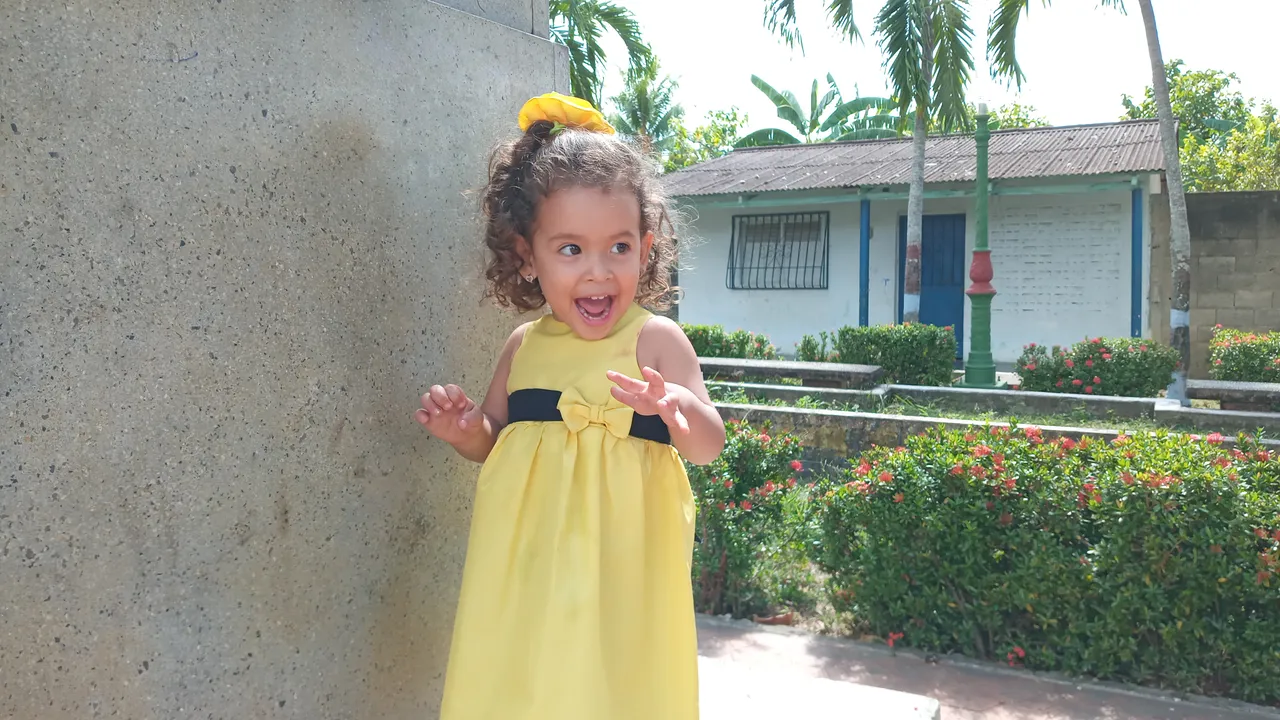
Ser madre no es una etapa en la vida de una mujer, es un camino que no termina, ya que al tener nuestros hijos nos convertimos en sus protectoras, cuidadoras y guías. Aunque nuestros hijos se conviertan en adultos la mayoría de nosotras mantenemos esa actitud para con ellos.
Pero también surgen algunos temores, situaciones complicadas y dificultosas que hacen ver el camino de la maternidad como un arduo trabajo; y algunas veces mantenemos sentimientos de culpas por las razones que explicaré a continuación:
Being a mother is not a stage in a woman's life, it is a path that does not end, because when we have our children we become their protectors, caregivers and guides. Although our children become adults, most of us maintain that attitude towards them.
But there are also some fears, complicated and difficult situations that make us see the path of motherhood as hard work; and sometimes we maintain feelings of guilt for the reasons I will explain below:

I. Cuando el bebé se enferma: Es una realidad que nuestros niños en todas las etapas de su desarrollo van a ser tocados por algunas enfermedades, algunas evitables, como, por ejemplo; parásitos intestinales por no desparasitar al niño, infecciones bucales por objetos sin lavar correctamente, parásitos por contacto con animales, diarreas por mal higiene. Pero también existen enfermedades que son difíciles de evitar como, por ejemplo; las epidemias, las genéticas, entre otras. Lo que bien es cierto, es que solemos sentirnos culpables por haberse enfermado nuestro hijo; algunas personas nos señalan y hasta cuestionan nuestro cuidado y dedicación para con nuestros hijos.
I. When the baby gets sick: It is a reality that our children in all stages of their development will be touched by some diseases, some avoidable, such as, for example; intestinal parasites for not deworming the child, oral infections from objects not washed properly, parasites from contact with animals, diarrhea due to poor hygiene. But there are also diseases that are difficult to avoid, such as epidemics, genetic diseases, among others. What is true is that we tend to feel guilty for our child getting sick; some people point at us and even question our care and dedication to our children.

II. El niño es desobediente: La gran mayoría de los niños después de los dos años aprenden a rebelarse a sus padres, por ejemplo; en esta etapa practican mucho el decir: “no” y negarse así a obedecer la voz de su papá o su mamá, en ocasiones cuando salimos a la calle y nuestro niño hace una escena así las personas alrededor inmediatamente cuestionan la crianza dada por sus papás. Por más que nos esmeremos por educar bien a nuestros hijos nos vamos a conseguir con acusaciones como: “lo consienten mucho”, “no lo corrigen”, “no saben criar”, “el niño gobierna a su papá a y a su mamá”, etc.
II. The child is disobedient: The vast majority of children after the age of two learn to rebel against their parents, for example; at this stage they practice a lot to say: "no" and thus refuse to obey the voice of their mom or dad, sometimes when we go out on the street and our child makes a scene like that the people around immediately question the upbringing given by their parents. No matter how hard we try to educate our children well, we will get accusations such as: "they spoil him too much", "they don't correct him", "they don't know how to raise him", "the child rules his father and mother", etc.

III. Cuando ocurren accidentes: ¡qué difícil es cuando empiezan a caminar!, los anhelados “primeros pasitos” se convierten en una odisea de: “cuidado se lleva eso a la boca”, “que no se salga a la calle”, que no agarre esto y aquello”. Los cuidados ameritan ser más intensos, como por ejemplo recubrir las tomas de corriente para evitar una descarga eléctrica “obviamente no queremos eso”. Pero siempre se nos escapa algo, podría ser que cayó agua al piso y el bebé al pasar se resbaló y se golpeó. De inmediato corremos a ayudarlo, pero la culpa de no haber estado allí para evitarle ese dolor nos invade. A veces nosotras mismas nos señalamos y nos hacemos sentir muy mal por no evitar los accidentes a nuestros hijos.
III. When accidents happen: how difficult it is when they start to walk, the longed-for "first steps" become an odyssey of: "be careful if they put that in their mouth", "don't let them go out in the street", don't let them grab this and that". Care needs to be more intense, such as covering electrical outlets to avoid an electric shock, "obviously we don't want that". But we always miss something, it could be that water fell on the floor and the baby slipped and hit it. We immediately run to help him, but the guilt of not having been there to avoid the pain invades us. Sometimes we point the finger at ourselves and make ourselves feel very bad for not preventing accidents to our children.

IV. Los avances del niño: Cuando vivimos en un círculo donde conocemos a otras madres, hay una situación que habitualmente se nos presenta, y es que terceras personas hagan comparaciones entre nuestros hijos y los de alguien más. Por ejemplo; “mi hija de 2 años ya se sabe los colores y la tuya aun no”. Este tipo de juicios hacia los niños debería ser descartado, y más cuando el objeto de ello es desacreditar la labor de alguna de las madres. Es evidente que los niños crecen y avanzan a ritmos diferentes, y las consultas para diagnosticar algún tipo de retraso debe hacerse exclusivamente al pediatra.
VI. The child's progress: When we live in a circle where we know other mothers, there is a situation that usually arises, and that is that third parties make comparisons between our children and those of someone else. For example; "my 2 year old daughter already knows her colors and yours doesn't". This type of judgments towards children should be discarded, especially when the purpose of it is to discredit the work of one of the mothers. It is evident that children grow and advance at different rates, and consultations to diagnose some kind of delay should be made exclusively to the pediatrician.
La culpa es un sentimiento que debemos aprender a combatir con el sentimiento de satisfacción de que estamos haciendo lo mejor que podemos, porque queremos lo mejor para esa personita especial que es nuestro bebé. Nadie sabe lo que sentimos en estas situaciones que les describí, pero entre madres sabemos que nuestro único objetivo es ver crecer felices a nuestros hijos, que ellos tengan una vida sana y estén seguros siempre.
Guilt is a feeling that we must learn to fight with the feeling of satisfaction that we are doing the best we can, because we want the best for that special person that is our baby. No one knows what we feel in these situations that I described, but among mothers we know that our only goal is to see our children grow happily, that they have a healthy life and are always safe.

“Ser madre es mucho más que parir a un hijo, es amarlo, cuidarlo y entregarle lo mejor que tenemos; nuestro corazón” –De mi Inspiración-
Gracias por leer mis líneas, y dedicar unos minutos de tu tiempo.
Atte. Anmilca Rosal
"Being a mother is much more than giving birth to a child, it is to love him, take care of him and give him the best we have; our heart" -From my Inspiration-.
Thank you for reading my lines, and dedicating a few minutes of your time.
Atte. Anmilca Rosal